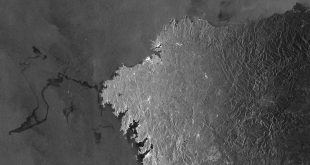Fabrice Flipo, Institut Mines-Télécom Business School Covid-19, an anthropocene disease? This is how professor Philippe Sansonetti sees the crisis we are experiencing. As a reminder, this concept proposed by Paul Crutzen and Eugene Stoermer in 2000 refers to the present geological time interval, in which “conditions and processes on Earth are profoundly affected by human impact”. This period has not yet …
Read More »Search Results for: Océan
Guillaume Balarac, turbulence simulator
Turbulence is a mysterious phenomenon in fluid mechanics. Although it has been observed and studied for centuries, it still holds secrets that physicists and mathematicians strive to unlock. Guillaume Balarac is part of this research community. A researcher at Grenoble INP (at the LEGI Geophysical and Industrial Flows Laboratory), he uses and improves simulations to understand turbulent flows better. His …
Read More »Optics as a key to understanding rogue waves
Rogue waves are powerful waves that erupt suddenly. They are rare, but destructive. Above all, they are unpredictable. Surprisingly, researchers have been able to better understand these fascinating waves by studying similar phenomena in fiber optic lasers. Before scientists began measuring and observing them, rogue waves had long been perceived as legends. They can reach a height of 30 …
Read More »Marine oil pollution detected from space
Whether it is due to oil spills or cleaning out of tanks at sea, radar satellites can detect any oil slick on the ocean’s surface. Over 15 years ago, René Garello and his team from IMT Atlantique worked on the first proof of concept for this idea to monitor oil pollution from space. Today, they are continuing to work on …
Read More »Sand, an increasingly scarce resource that needs to be replaced
Humans are big consumers of sand, to the extent that this now valuable resource is becoming increasingly scarce. Being in such high demand, it is extracted in conditions that aren’t always respectful of the environment. With the increasing scarcity of sand and the sometimes devastating consequences of mining at beaches, it is becoming crucial to find alternatives. Isabelle Cojan and …
Read More »GDPR: towards values and policies
On May 25th, the GDPR came into effect. This new regulation requires administrations and companies in the 27 EU countries to comply with the law on the protection of personal data. Since its creation in 2013, the IMT Research Chair Values and Policies of Personal Information (CVPIP) aims to help businesses, citizens and public authorities in their reflections on the …
Read More »Emergency logistics for field hospitals
European field hospitals, or temporary medical care stations, are standing by and ready to be deployed throughout the world in the event of a major disaster. The HOPICAMP project, of which IMT Mines Alès is one of the partners, works to improve the logistics of these temporary medical centers and develop telemedicine tools and training for health care workers. Their …
Read More »Fraud on the line
An unsolicited call is not necessarily from an unwelcome salesman. It is sometimes a case of a fraud attempt. The telephone network is home to many attacks and most are aimed at making a profit. These little-known types of fraud are difficult to recognize and difficult to fight. This article is part of our series on Cybersecurity: new times, new …
Read More »Protecting ships against modern-day pirates
Cybersecurity, long viewed as a secondary concern for naval systems, has become increasingly important in recent years. Ships can no longer be seen as isolated objects at sea, naturally protected from cyber-attacks. Yvon Kermarrec, a researcher in computer science at IMT Atlantique, leads a research chair on cybersecurity in partnership with the French Naval School, Thales and Naval Group. He …
Read More »From springs to lasers: energy’s mysterious cycle
In 1953, scientists theorized the energy behavior of a chain of springs and revealed a paradox in fundamental physics. Over 60 years later, a group of researchers from IMT Lille Douai, CNRS and the universities of Lille and Ferrara (Italy) has succeeded in observing this paradox. Their results have greatly enhanced our understanding of physical nonlinear systems, which are the …
Read More » I'MTech L'actualité scientifique et technologique de l'IMT
I'MTech L'actualité scientifique et technologique de l'IMT









